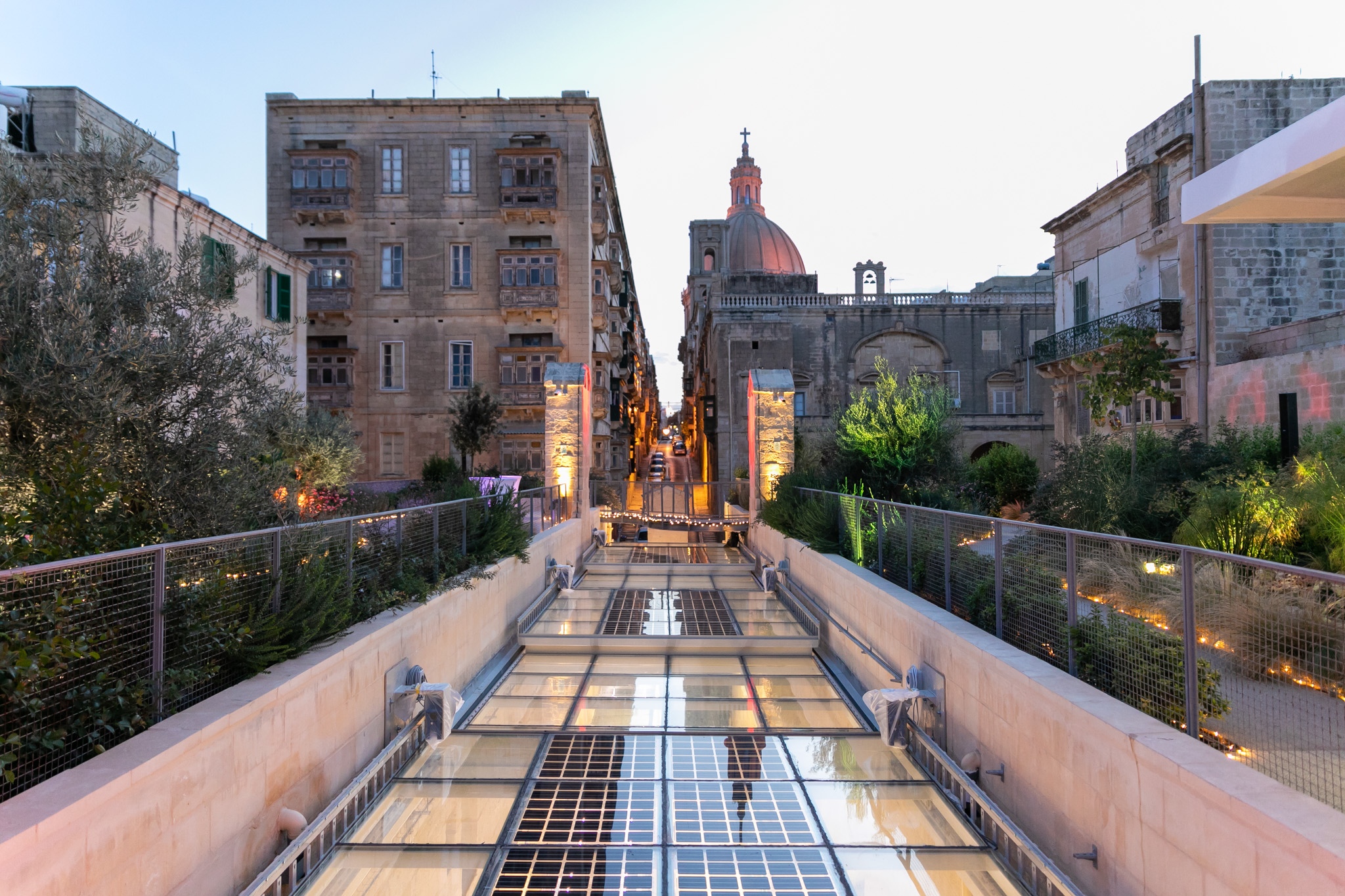The Valletta 2030 vision is based on green energy and environmental improvements. The main aim of this vision is to have a greener city with less pollution and fewer cars.
This vision for our Capital is achievable. One only needs to look at the Valletta Design Cluster which was a resounding success in terms of how to develop a sustainable building for the green cities of tomorrow.
Green energy replaces the negative effects of fossil fuels with alternatives that are more environmentally friendly and sustainable. By shifting to clean and renewable energy, we continue to cut down on greenhouse gas emissions, allowing us to do our bit in the battle against climate change.
Renewable energy can be very beneficial for cities since it results in cleaner air, modern services, and more habitable spaces. Malta can further invest in solar energy, especially considering our islands have on average 300 sunny days per year. By creating more incentives and initiatives to drastically increase the number of solar panels in Valletta so that private residences, offices, shops and other buildings, we can capitalise on renewable energy.
The Valletta Design Cluster also makes use of solar energy, generated from a glass canopy installed atop the Cluster’s central courtyard that has in-built photovoltaic (PV) cells, thus reducing Cluster’s dependence on fossil fuel energy.
Officially inaugurated earlier this year, the Cluster can be considered a pilot project in how to scale up green infrastructure. The community space for cultural and creative practice situated in the renovated Old Abattoir building (il-Biċċerija) in Valletta, houses a roof garden which helps increase oxygen in our atmosphere while also contributing a green public space in a fortified urban city.
Furthermore, the greenery on the roof also helps to keep the temperature stable inside the rooms underneath, making the space less dependent on artificial cooling and heating throughout the year. The watering of the garden is also sustainable as the irrigation system is connected to two large underground cisterns that are fed by a new rainwater catchment system installed in the building.
Inspired by the ecological success of the Valletta Design Cluster we are making a series of proposals to the Government and concerned authorities.
• In the forthcoming budget, the government should incentivise and encourage the Valletta communities, retail shops and other businesses but also government buildings, to switch to solar energy.
• As from 2030, new permits for hospitality including, but not only, for hotels, holiday appartments, restaurants and other entertainment venues should be granted only to those who are 100% eco-friendly.
• By 2025, Valletta should have a number of rooftop gardens on historical buildings such as Spazju Kreattiv and Parliament Building among other Government buildings including Auberges, where most of the Ministries are situated. The Valletta Design Cluster rooftop is a prime example how this should be done.
• By 2023, all vehicles providing services in Valletta, including waste collection, the servicing of the hospitality industry in Valletta, and others, must all be electrically powered and of one specific size, respecting the narrow streets of Valletta and its environment.
• By 2023, all services coming to Valletta, including delivery trucks, must be provided on specific days and times of the week according to a schedule in agreement with the concerned owners. This is a great effort to reduce traffic in the centre of Valletta which is one of the main air polluters in the city constantly damaging restored buildings.
• By 2030, only electric vehicles are to be permitted into Valletta.
• By 2023, the transporatation of people using the Park and Ride in Blata l-Bajda should be operated by 100% battery run vehicles.
• More pedestrian areas and squares should be considered in the coming future namely, parts of St Christopher Street and Archbishop Street from the current Valletta Police Station up to the Archbishop’s Palace to Independence Square, including the Square itself in front of St Paul’s Pro-Cathedral.
• The Valletta Police Station should be shifted to a much better and centralised location namely the Freedom Square derelict arcade in front of Parliament. The Government should regenerate this spacious building, which is government owned and in need of a facelift in Valletta’s entrance. It is up to the Government to decide the best outcome for this mostly abondoned building for many years. The Valletta Police Station will be much more suited at this place.
